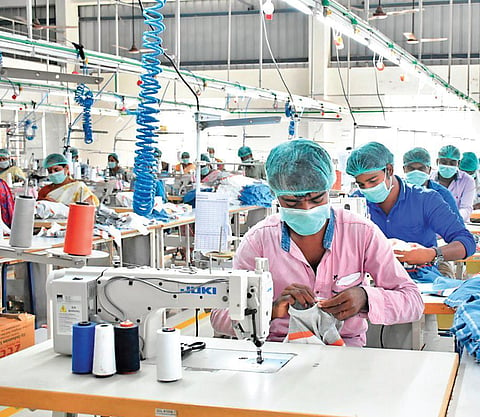

TIRUPUR: Known as ‘Dollar City’, Tirupur has over 2,000 apparel-manufacturing units and 5,000 garmentaccessory units involved in knitting, dyeing, compacting, printing and embroidery. However, it lacks affordable accommodation for those who work in these units. “House owners fleece the workers, even for just a room on the terrace,” says a source.
Ahead of the elections, industrialists and employees expect the upcoming government to allocate land to house the labourers. According to the Revenue department, there are more than 1.30 lakh migrant labourers 45,722 from Odisha, 37,348 from Bihar, 12,026 from West Bengal, 9,396 from Uttar Pradesh, 9,044 from Jharkhand, and 7,340 from Assam, among other States.
Besides them, there are more than 60,000 migrant workers from nearby districts, including Dindigul, Madurai, Theni, Tiruchy, Pudukkottai, and Tirunelveli. Most workers in the garment industry are severely stressed by the high rent and shortage of residential facilities. “I’ve been working at a garment export unit on Mangalam Road for three years.
As a supervisor, I earn Rs 12,000 per month, and can’t afford even a single room as the cost has risen to Rs 3,000 per month. This has forced me to live in a large compound with my friends and their families. I pay about Rs 2,000 per month,” says Ajay Kumar (32), a worker from Bihar. While it might be difficult to find housing, there’s no shortage of land, explains AITUC-Banian Workers Union (Tirupur) secretary N Sekar. “There are several hundred acres that can be used to build houses.
We submitted several proposals to the TN Housing Board and TN Slum Clearance Board regarding this, but didn’t get any response.” He adds that workers aren’t safe in the residential facilities run by garment units. “When a worker from North India wishes to leave the job, he or she is forced to vacate the room immediately.
Without a place to stay, they usually return to their native place.” Apparel Export Promotion Council chairman A Sakthivel acknowledges the seriousness of the problem. “Though the textile and garment industry is built on the hard work of entrepreneurs, it requires the active support of the workers, and they need residential facilities,” he asserts.